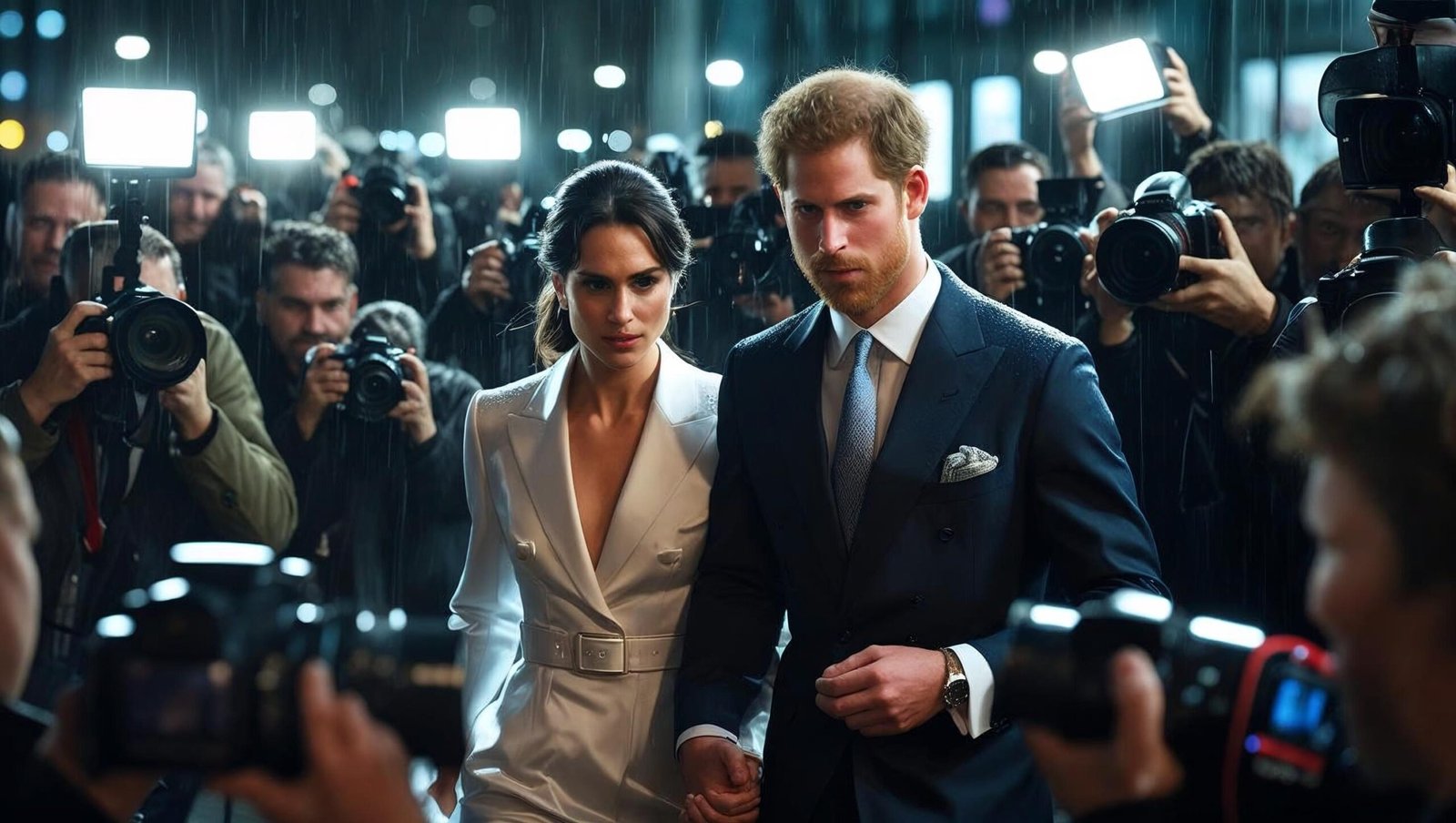Spare by Prince Harry: 10 Shocking Revelations That Shook the Royal Family
“Spare by Prince Harry” is more than a royal memoir—it is a cathartic outpouring of grief, identity struggle, and emancipation. Published in January 2023, the book shattered global headlines not only for its royal gossip but also for its emotional honesty, bringing readers face-to-face with the intense burden of being the ‘spare’—a term that symbolises redundancy in monarchy.
In this in-depth review, we will explore the pivotal themes, striking anecdotes, and raw emotions that define Spare by Prince Harry. We’ll also evaluate the memoir’s impact on readers, critics, and, most significantly, the British Royal Family.

Understanding the Title – What Does “Spare” Truly Mean?
The title Spare encapsulates Prince Harry’s lifelong identity conflict. From the day he was born, Harry was branded the “spare” to his elder brother, Prince William, the “heir.” Within aristocratic tradition, this meant he existed solely as a backup—a contingency plan. Spare by Prince Harry explores the psychological scars this label left on him, illuminating the emotional neglect and structural expectations imposed by royalty.
Harry’s role as the “spare” made him feel undervalued, replaceable, and unseen. This theme resonates with anyone who has ever been sidelined or overlooked in favour of another.
1. Prince Harry’s Anguish Over Princess Diana’s Death
The emotional backbone of Spare by Prince Harry is the tragic loss of his mother, Princess Diana. Harry was merely 12 years old when she died in a car crash in 1997. For decades, he lived in a fog of denial, convincing himself she had staged her own death to escape the relentless media.
Harry’s grief remains raw throughout the memoir. He revisits the funeral, the long walk behind his mother’s coffin, and the years of unresolved trauma that followed. Spare by Prince Harry boldly uncovers how unresolved childhood grief can echo into adulthood.
2. Conflict with Prince William
Spare by Prince Harry exposes the deep-rooted friction between Harry and Prince William, which culminated in several explosive arguments. In one shocking revelation, Harry claims William physically attacked him during a heated confrontation over Meghan Markle.
While sibling rivalries are common, the way Spare by Prince Harry presents these moments indicates a wider dysfunction within the royal structure—one that prioritises appearances over emotional reconciliation.
3. Meghan Markle and the Media Onslaught
A significant portion of Spare by Prince Harry details the relentless media attacks on Meghan Markle. Harry recounts racist tabloid coverage, invasive paparazzi tactics, and an overall lack of support from the Royal Family. The memoir doesn’t shy away from highlighting how the couple’s mental health suffered gravely under public scrutiny.
It is evident that Spare by Prince Harry serves as a defense of Meghan and a condemnation of the institution’s failure to protect her.
4. Life in the British Army
One of the most surprising parts of Spare by Prince Harry is the chapter chronicling his military service. Contrary to public perception, Harry’s time in the British Army gave him structure, purpose, and a temporary escape from royal expectations.
He served two tours in Afghanistan and speaks candidly about his time as an Apache helicopter pilot. However, Spare by Prince Harry also reveals controversial details, including the number of Taliban fighters he claims to have killed—a disclosure that drew public backlash.
5. Struggles with Mental Health
Harry’s honesty regarding mental health is one of the most commendable aspects of Spare by Prince Harry. He speaks openly about panic attacks, anxiety, and therapy—subjects often taboo among royals.
The memoir presents therapy not as a cure-all, but as a necessary tool for healing generational trauma. This transparency adds depth and humanity to a figure often reduced to tabloid caricature.

6. His Relationship with King Charles III
Harry’s depiction of his father is complex. Spare by Prince Harry describes King Charles III as emotionally distant yet occasionally humorous and affectionate. Charles’ failure to protect Harry from media harassment is a recurring grievance.
The book also touches on Camilla, now Queen Consort, suggesting she actively sought favourable press at Harry’s expense. The dynamics here are subtle yet revealing.
7. Exile and Liberation
The royal exit—dubbed “Megxit” by tabloids—is one of the memoir’s climactic episodes. Harry portrays the decision as not an act of betrayal, but survival. The departure to North America signified a reclamation of personal freedom.
Spare by Prince Harry captures both the relief and the weight of abandoning royal duties. While free from the monarchy’s grip, Harry wrestles with guilt, nostalgia, and displacement.
8. His Relationship with the Press
One of the most powerful sections in Spare by Prince Harry is his condemnation of the British tabloid press. Harry accuses them of exploiting his pain, manipulating public opinion, and contributing to Princess Diana’s death.
He spares no detail in describing how the media turned family drama into commercial fodder, intensifying the psychological torment of being both a public figure and a grieving son.
9. The Ghostwriter and Narrative Style
Spare by Prince Harry is ghostwritten by J.R. Moehringer, the acclaimed author behind The Tender Bar. Moehringer’s narrative elegance elevates Harry’s story, making it both literary and conversational.
The memoir’s tone is intimate, oscillating between bitter resentment and deep vulnerability. This helps readers connect with Harry’s humanity, regardless of their views on the monarchy.
10. Public Reception and Global Impact
Upon release, Spare by Prince Harry became the fastest-selling non-fiction book in history. While some praised it as a bold act of truth-telling, others dismissed it as self-pitying.
Regardless of opinion, the memoir sparked global conversations about monarchy, mental health, racism, and media ethics. It challenged long-held perceptions and redefined Harry’s public image on his own terms.
A Literary Analysis of Tone, Structure, and Symbolism
The narrative’s composition unfolds in three distinct acts—childhood, military service, and emancipation. The arc, while chronological, is not linear in emotion. The structure has been skillfully arranged to juxtapose moments of innocence with those of disillusionment. This deliberate pattern allows readers to grasp the internal tension the author endures at various life stages.
The language is accessible yet layered with metaphor. Moments of reflection are interspersed with stark admissions. One might observe a recurring motif of entrapment: be it within institutional tradition, grief, or fame. The royal palaces—ostensibly symbols of grandeur—are described more as gilded cages than stately homes. Such recurring images enhance the thematic gravity of the memoir, marking it as more than a mere celebrity tell-all.
The diction remains restrained even when the content is explosive. There is an undertone of sadness—sometimes bordering on bitterness—but rarely lapsing into overt self-pity. This tonal balance is one of the book’s literary strengths. The memoir is at its best when it lets the experiences speak without excessive commentary.

Contextualising Within Royal Memoirs
When placed alongside previous autobiographical accounts from royal figures, this book distinguishes itself through its rawness. Earlier memoirs by members of aristocracy or those close to it—such as Sarah Ferguson or even Princess Diana’s own interviews—were tinged with decorum. They spoke between the lines, often cautious in candour. In contrast, the present work defies that tradition with unfiltered honesty.
This contrast invites reflection on how public expectations from royalty have evolved. The veil of mystique that once protected the monarchy seems to have thinned. Contemporary readers demand transparency, not perfection. This memoir delivers just that, albeit at the risk of upsetting age-old sensibilities. The author may have initiated a shift not only in royal storytelling but also in public engagement with institutional power.
Public and Critical Response: A Divided Landscape
The reactions to this publication have been sharply divided. Admirers commend the courage and vulnerability on display. They appreciate the shedding of ceremonial stiffness in favour of human depth. Mental health advocates, in particular, have welcomed the open discussion of anxiety, grief, and therapy.
On the other hand, detractors view the work as disloyal—some even call it vindictive. Critics from conservative circles argue that airing family grievances in public contradicts the very principles that monarchy relies upon: discretion, duty, and unity. Some also question the motivation behind such disclosures, suspecting monetary or reputational motives.
Interestingly, the divide is not limited to British and non-British audiences. Across demographics, there are those who view the memoir as a necessary intervention in royal history, while others perceive it as an unnecessary rupture. This duality in reception speaks to the complexity of the issues it touches—ranging from institutional rigidity to personal identity.
The Psychology of Rejection and Belonging
At its psychological core, the narrative is a study of belonging—or the lack thereof. Rejection, both overt and subtle, becomes a recurring emotional wound. The search for inclusion appears to begin early in life, shaped by comparisons and inherited roles. What one observes throughout the chapters is not simply a rebellion against family, but rather a yearning for unconditional acceptance.
There is also a theme of masculinity explored through unconventional lenses. Traditional models of royal masculinity—stoic, unemotional, authoritative—are challenged through depictions of vulnerability and self-doubt. This makes the memoir particularly relevant to readers questioning outdated gender norms.
Equally poignant is the emotional inheritance of grief. The loss of a parent at a formative age alters one’s relationship with the world. This sentiment is portrayed not just in recollections of mourning, but also in the shaping of interpersonal relationships that follow. Each close bond is shadowed by the fear of loss, abandonment, or betrayal.
Symbolic Escapes and Geographic Shifts
Geography plays a symbolic role throughout the memoir. Locations are not merely backdrops but become extensions of emotional states. Africa emerges as a sanctuary, often described with reverence. It is there that the narrator finds moments of stillness and clarity. In contrast, London—though home—is depicted as a stage of relentless intrusion.
The move across the Atlantic serves as both a literal and metaphorical journey. While some interpret the relocation as an escape, others see it as a search for redefinition. The tension between origin and destination underscores the broader human dilemma: Can one ever truly leave behind the place that shaped them, no matter how painful?
Comparative Memoir Reflections
When compared to other high-profile memoirs, such as Michelle Obama’s Becoming or Barack Obama’s A Promised Land, this work differs in tone and scope. Where the Obamas offer reflections deeply embedded in policy, social justice, and history, this narrative is more inward—an examination of one man’s psyche shaped by immense privilege and equally intense scrutiny.
Yet, there is a surprising commonality across these seemingly disparate lives: the struggle to be seen beyond the role. Whether a First Lady, President, or a younger royal, public figures grapple with the erosion of self in the face of expectation. This thematic overlap makes the memoir part of a larger literary conversation about identity under the spotlight.
The Future of Monarchical Relevance
This publication inevitably invites questions about the institution of monarchy in the 21st century. Is it possible for such a hierarchical and secretive structure to survive the age of transparency? The controversy sparked by this memoir, coupled with the widespread media appetite for royal drama, suggests a growing tension between tradition and modernity.
Younger generations appear increasingly critical of inherited privilege and unaccountable power. The emergence of a candid, emotionally articulate former royal disrupts the carefully curated image the monarchy seeks to maintain. This disruption may not dismantle the institution, but it certainly forces it to evolve—or risk irrelevance.
The conversation has moved from pageantry to purpose. From gowns and titles to emotional authenticity and accountability. The author’s decision to publish may serve as a catalyst for further introspection within the royal establishment itself.

The Role of Media: Amplifier or Antagonist?
The media’s role cannot be overstated. Coverage of the memoir often bordered on obsession, with every claim dissected for political and familial implications. Yet, it is worth questioning whether the press served merely as a messenger or an antagonist.
There is a cyclical irony at play—the same media ecosystem that fuels the very trauma described in the memoir is the one amplifying its revelations. This raises ethical dilemmas around journalism, voyeurism, and the commercialisation of personal pain. The question remains: is transparency truly desired by the public, or is it commodified spectacle?
The Power of Rewriting One’s Story
One of the memoir’s understated achievements is the reclamation of narrative. For much of his life, the subject of this book was spoken about, not by. His image was filtered through tabloids, tradition, and television. With the publication of this work, that dynamic shifted. He speaks in his own voice, chooses his own emphasis, and owns his contradictions.
This act of narrative ownership is not exclusive to royalty. It resonates with anyone who has struggled to define themselves amid external labels. The right to tell one’s story is fundamental. This book is a bold exercise of that right, regardless of the consequences.
Final Thoughts: A Mirror for the Modern Reader
More than anything, the memoir functions as a mirror. Readers may find in its pages reflections of their own wounds, fears, or unspoken yearnings. While few will relate to the trappings of royalty, many will understand the desire for authenticity, the weight of grief, or the ache of fractured kinship.
In choosing to publish, the author has exposed not just his life, but the silent dynamics of countless families and institutions. The real value of this book may not lie in its sensational headlines, but in its quiet affirmations: that pain can be spoken, healing can be chosen, and identity can be reclaimed.
Why “Spare by Prince Harry” Matters
At its core, Spare by Prince Harry is not just about royal scandal—it is about a man seeking peace, purpose, and identity. It’s about generational trauma, media manipulation, and the high cost of silence. For readers, the memoir serves as a mirror reflecting society’s obsession with status, perfection, and voyeurism.
Criticism and Controversy
While many admired Harry’s candour, Spare by Prince Harry did attract criticism for its perceived oversharing. Critics argued that it breaches family confidentiality and damages the monarchy’s mystique.
Yet, the memoir raises a powerful question: Should public figures stay silent for tradition’s sake, or speak out to preserve personal truth?

What Can We Learn from Spare by Prince Harry?
-
Grief doesn’t fade—it transforms.
-
Family loyalty is complex and conditional.
-
Therapy and self-reflection are acts of courage.
-
Narrative control matters—especially when you’ve never had it.
FAQs
Q1. What is the main message of Spare by Prince Harry?
Spare by Prince Harry communicates the search for identity, the impact of grief, and the need to reclaim one’s narrative in the face of institutional suppression.
Q2. Is Spare by Prince Harry suitable for non-royal followers?
Yes. While it discusses royal life, the memoir’s emotional themes—family dynamics, mental health, and personal freedom—are universally relatable.
Q3. Why is the book called “Spare”?
The title reflects Harry’s position as the royal “spare,” born to support the heir. The book explores how this role affected his life and self-worth.
Q4. Is the memoir overly critical of the Royal Family?
Spare by Prince Harry is candid and at times critical, but it also contains moments of affection and understanding. It’s more reflective than vengeful.
Q5. How many times is Meghan Markle mentioned in Spare?
Meghan plays a central role in the second half of Spare by Prince Harry, representing both a source of love and a lightning rod for public hostility.
Conclusion: A Bold Act of Vulnerability
Spare by Prince Harry is an act of literary defiance—a declaration that even the world’s most privileged individuals can suffer deeply. It is not perfect, but it is powerful. It may polarise, but it cannot be ignored.
By sharing his truth, Harry does not destroy the royal legacy; he reclaims his humanity. And in doing so, Spare by Prince Harry invites us all to question the roles we’re assigned, the pain we bury, and the lives we want to live.
For readers seeking courage, clarity, and catharsis, Spare by Prince Harry offers a rare glimpse into a life lived in the shadows—and a powerful walk toward the light.
🟢 Read more honest book reviews and life-changing insights at shubhanshuinsights.com.
📘 Have you read Spare by Prince Harry? What did you feel about his journey? Drop your thoughts below.
💬 Do you believe public figures should speak openly about personal trauma? Let’s discuss in the comments.